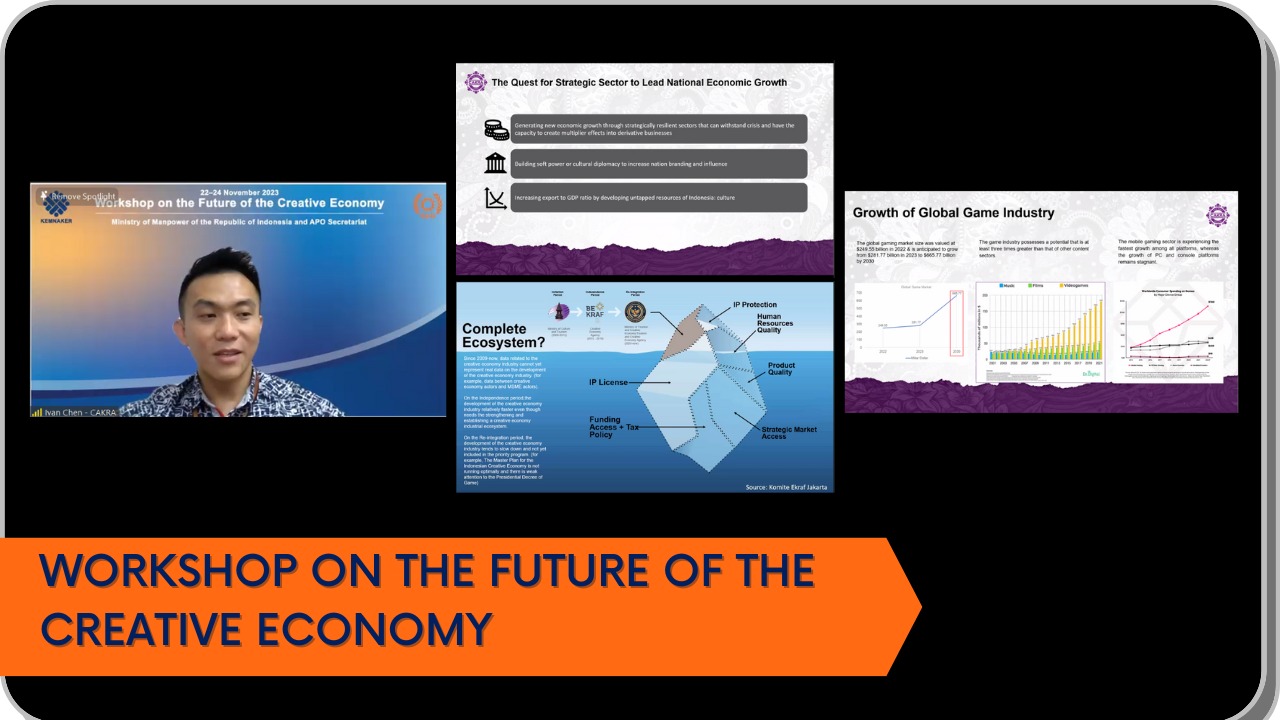
Select Page

The creative economy holds immense significance for productivity and economic growth as a catalyst for innovation and diversification. Capitalizing on unique cultural heritage, the creative economy stimulates local communities, attracts tourism, and opens new markets, thereby boosting both domestic and international trade. Moreover, it plays a crucial role in empowering SMEs and the youth, nurturing entrepreneurship, and facilitating the development of new skills for the digital age. Despite their potential, many APO members face challenges in fully harnessing the benefits of creativity, such as insufficient understanding of creative industries, lack of supportive policies, absence of intermediaries, and inadequate financial support.
An online workshop on the Future of the Creative Economy was implemented 22–24 November by the Ministry of Manpower of the Republic of Indonesia and APO Secretariat. This workshop addressed current obstacles and offered insights and strategies for future growth. Attended by 34 participants from 14 APO members, the workshop focused on the potential of creative industries, encompassing arts, music, design, fashion, advertising, and gaming. Seven resource persons, comprising two from Indonesia, and one each from Canada, France, India, the Netherlands, and Switzerland, delivered sessions including an overview of the creative economy, digitization modelling, policy initiatives, advertising as a creative industry, and insightful case studies from India, Japan, and the Republic of Korea.
The creative economy is not just an economic asset but a transformative force that intertwines cultural richness with economic development, paving the way for a more dynamic, inclusive, sustainable economic future. Embracing the ever-changing economic landscape, the APO is dedicated to exploring and supporting the creative economy to meet the needs of its members.